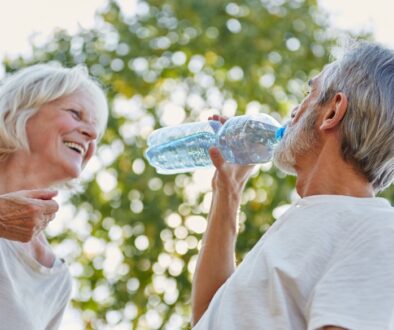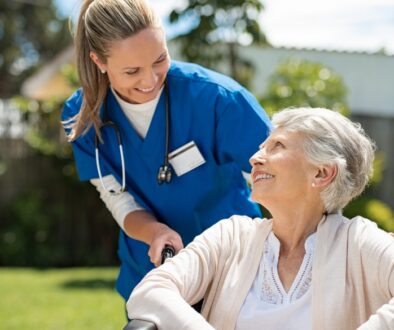How To Prevent Dehydration
For many, the long-awaited summer months bring to mind family picnics, cool drinks on the porch, and lazy afternoons at the beach. But, as temperatures soar, warm weather activities can increase the risk for another staple of summer: dehydration. Not getting enough fluids, especially when it is hot outside, can pose serious health problems for anyone, but older adults are at particular risk for dehydration.
Why Seniors Are At Risk
There are a few reasons why older adults are more susceptible to fluid and electrolyte imbalances. With age, our body’s ability to conserve water is reduced. This can make it more difficult to adapt to things like fluctuating temperatures. Additionally, the sense of thirst diminishes with age. By the time someone actually feels thirsty, essential fluids could already be extremely low.
Certain medical conditions and medications can affect a senior’s ability to retain fluids. Individuals with dementia may forget to eat and drink, and in more advanced stages may have difficulty swallowing. Drugs like diuretics, antihistamines, laxatives, antipsychotics and corticosteroids can cause frequent urination that depletes water and electrolytes. Furthermore, seniors who experience incontinence often purposely refuse or limit fluids in order to avoid accidents.
Signs & Symptoms Of Dehydration
As a family caregiver, it’s important to be mindful of the signs and symptoms and to communicate with a doctor or health professional if you notice red flags that could indicate complications from fluid loss.
Picking up on the more subtle, early signs that a senior needs to up their fluid intake is crucial. Keep in mind that thirst is not usually a helpful indicator, because a person who feels thirsty may already be dehydrated. Initial signs to look for include headache, constipation, muscle cramps, dry mouth and tongue, and sleepiness or lethargy. Urine color is another helpful indicator and should be clear or light yellow for someone who is properly hydrated.
If severe dehydration goes unchecked, it can cause seizures due to electrolyte imbalance, a reduction in the volume of blood in the body (hypovolemic shock), kidney failure, heat injuries, and even coma or death.
Keep Up To Date On News And Blogs
Find all of The Neighbors of Dunn County’s current nursing home news here.
Source: Aging Care




